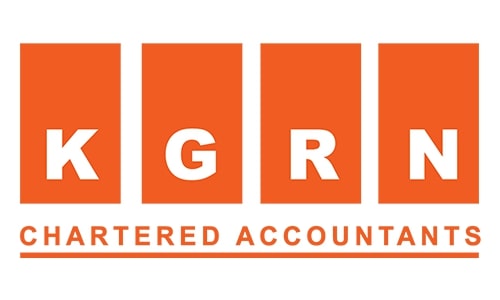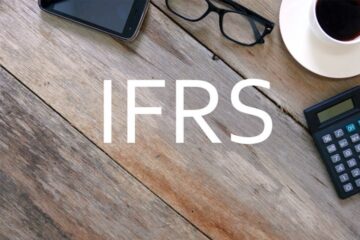5 Questions to Ask a Small Business Accountant Before You Hire Him or Her
1. Is it necessary to have a certain kind of accounting job?
It is critical to start the process by determining your organization’s accounting needs. What professional accounting services do you require? Make a list that is as detailed as possible. Perhaps you require assistance with upgrading the vendor payment software and associated procedures. Instead, you might prefer a thorough investigation and reporting on Accounts Receivable issues.
Perhaps you’re nearing the end of the fiscal year and would like an accountant to assist an external auditor by preparing specific audit documents for the auditor to review.
Write out exactly what you want this employee to do; this will be useful later on when you are establishing your accountant job descriptions. In terms of supplies, the more prepared you are, the less time you will need to spend on this process.
2. What Type of Accountant Do I Require for My Company?
After you’ve performed your accounting requirements analysis, you should decide whether you need an Accountant or a Certified Public Accountant (CPA) (Certified Public Accountant). There is a difference between the two.
An accountant is in charge of gathering and analysing financial records for a company’s financial records and transactions. In order to work in this field, accountants often have a bachelor’s degree in accounting from a recognised college, although this is not a legal need in most jurisdictions in the United States. It is entirely up to the organisation that is doing the recruitment to make this decision.
A Certified Public Accountant (CPA) is a much more sophisticated professional than a traditional accounting practitioner. Certification as a Certified Public Accountant (CPA) is awarded after meeting specific educational and professional qualifications and passing an exam. The requirements for becoming a certified public accountant (CPA) differ from state to state.
Ordinary accountants are not permitted by law to do some responsibilities, such as drafting financial statements for audit or representing a taxpayer or corporation in meetings with Internal Revenue Service Revenue Officers or Counsel. Depending on your particular situation, you may find that employing a CPA is more beneficial to your company.
Considering that a CPA is often paid substantially more than a regular accountant, your decision on whether or not to employ one will be impacted by your requirements and financial constraints.
3. How Do I Locate a Certified Public Accountant?
It is possible to find an accountant via referrals, classified advertisements, and social media.
Prior to doing a full-fledged job search on social media or posting on job boards such as Indeed.com, seek for suggestions from peers in your area of expertise. What you actually want is a suggestion from a colleague who has hired someone to execute the identical activity that you need done in your field and has been satisfied with the results.
The importance of this is that it will save you time when you are discussing the complexities of your sector once you have discovered the appropriate candidate.
Create a list of follow-up questions for those who answer – for example, Were all of your responsibilities completed on time? Was the information in the reports complete and accurate? Were there any difficulties? Were they made aware of them from the beginning, or did they find out about them after the fact. To put it another way, how responsible and proactive was the prospective applicant?
If the suggestions aren’t working, you may want to try putting an advertisement. Formalize your educational criteria and professional experience expectations in a one-page document that you will provide to applicants.
Make it clear if you want an accountant or a Certified Public Accountant. Include your compensation and benefits (if this is a full-time employment). Then upload it to a job-search website to be considered for the position. You might also just notify all of your friends and acquaintances on social media sites such as Facebook, Twitter, and LinkedIn that you are searching for an accountant.
4. what should I expect during my accounting interview.
When it comes to choosing an accountant, there are a number of factors to take into consideration:
Qualifications. What type of educational background did the candidate have? If he’s a CPA, you may verify his qualifications with the state board in where he practises.
Work experience prior to this position Can you tell me how much it costs and where I can get it?
Education should be ongoing.
If so, is the applicant acquainted with and up to date on the most modern accounting methods and procedures, as well as the most recent government regulations and taxes that apply to your industry and are pertinent to your company?
Referrals.
Do they have a list of former or present customers who would endorse them? You’ll want to get in touch with them over the phone.
Availability.
If you don’t employ him on a full-time basis, how many other clients does he have? Is he even willing to take on your challenge? Will he supervise the work personally, assuming he has the necessary employees, or will he delegate it to someone else?
What level of involvement does he expect to have? When interviewing candidates, you’ll want to obtain a rough feel of their availability, and if the recruiting process continues, you can work out the specifics afterwards.
Consent to be bound by the Terms and Conditions
Are the costs reasonable for you both? Do you have any questions? Are your expectations in line with those of the candidate? Is there anything on which you can’t seem to agree or that you can’t seem to resolve?
Personality and Attitude are important factors to consider.
Consider how the encounter went and whether or not you think you’ll get along with this individual when it’s all over with. Perhaps the applicant is well-versed in the standards of your industry and the most up-to-date best practises for handling funds, but he or she does not seem to be worried about concerns of confidentiality or confidentiality breaches.
Perhaps it was a storey he recounted about a previous customer that made you feel uneasy. Alternatively, he may have informed you that he went above and above on something that was essential to you as a customer. Consider these criteria to be on par with the others in terms of importance.
5. Is It Possible for Me to Receive a Formal Job Offer from an Accountant?
As soon as you’ve chosen a candidate you like and come to an agreement on a price that’s reasonable for both sides, you’ll need to draught a contract that both you and the accountant will be bound by. It’s possible that you already have a lawyer on staff that deals with these kind of difficulties for new hires.
You should, however, be very clear about the start date and any other details that are crucial to you, as you will want everything to get off to a successful start. Keep in mind that many organisations often give a 90-day trial period for new employees, and the vast majority of workers are OK with this arrangement.
A third-party vendor’s contract will be substantially more extensive than a company’s own contract. Write down the specifics of the work to be done, the projected completion dates, and any additional requirements that may be required.
It is recommended that you include a confidentiality agreement that is signed before work starts in both circumstances since the nature of the employment in both cases includes financial data.
Consider the transaction to be completed only once you have signed both the official contract and the confidentiality agreement.
What Are the Responsibilities of a Certified Public Accountant?
CPAs often earn more than conventional accountants because of their extensive knowledge and experience in the area. According to the Journal of Accountancy, the average annual pay of a certified public accountant (CPA) in the UAE. It is not included in this figure any bonuses or other incentives that may have been received.
A chartered accountant’s responsibilities may be divided into four categories:
Data Management and Administration
Keeping track of data storage, administration, and upgrading is my job.
Financial Analysis and Consultation Services
Data analysis and management assistance that is accurate
Reports on the Financial Situation
Business and the Internal Revenue Service (IRS) demand the ability to prepare conventional business reports and financial statements.
Regulatory compliance is important.
Maintaining compliance with government rules and ensuring that the firm adheres to industry standards are two important responsibilities.
Contact us for Looking Certified Accountant in Dubai







